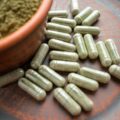The answer to “how long does alcohol withdrawal last?” varies depending on factors such as the severity of the alcohol addiction and the alcohol abuse. However, from the point of view of someone who is experiencing symptoms of alcohol withdrawal, it may seem never-ending.
Be rest assured, though, that while alcohol withdrawal symptoms and alcohol withdrawal syndrome may feel like they will last forever, the reality is that they will resolve within around eight days, and you can make a long-term alcohol abuse recovery.
What Are Alcohol Withdrawal Symptoms?
Symptoms of alcohol withdrawal depend on the amount of alcohol consumed, frequency of alcohol consumption, and whether you have already been through withdrawal in the past.
The team at Tulip Hill knows what it is like trying to help someone achieve sobriety. We are dedicated to helping you climb out of the pit of addiction with all of the services at our disposal – you don’t need to go through alcohol withdrawal alone.
If you only drink small amounts of alcohol, you may well only experience mild alcohol withdrawal symptoms. Mild alcohol withdrawal symptoms include:
- Anxiety
- Shakiness
- Irritability
- Loss of appetite
- Nervousness
On the other hand, if your alcohol intake is very high and you have an alcohol addiction, you could experience much more severe symptoms, such as:
- Fast heart rate
- Tremors
- Disorientation
- Hallucinations
- Seizures
- Vomiting
Delirium Tremens (DTs)
Delirium tremens is the most severe symptom of alcohol withdrawal, and they generally occur in people who have been drinking high volumes of alcohol for a long time. Although treatment is available for DTs, they cause a series of unpleasant effects that can be life-threatening.
Risk factors for DTs include:
- High amounts of alcohol consumed in the weeks before withdrawal
- Previous episodes of alcohol withdrawal
- Previous experience with severe alcohol withdrawal symptoms
- Underlying health issues
- Being an older person
- Having a mental health problem
- Being in poor general health
Symptoms of DTs include:
- Impaired consciousness
- Agitation
- Aggression
- Irritability
- Confusion
- Trembling
- Sweating
- Tachycardia
- Nausea
- Vomiting
- Hallucinations
- Tremors or seizures
If you have been a heavy drinker for several years, you should not suddenly stop drinking. Instead, it is in your best interest to complete a medical detox at a rehab center, such as ours. Doing so will guarantee your safety while going through alcohol withdrawal, and medical detox will also ensure that you have support and guidance from medical professionals if you experience severe symptoms.
How Can I Reduce Withdrawal Symptoms?
Experiencing severe withdrawal symptoms can be extremely unpleasant, and it is natural to want to reduce the symptoms of alcohol withdrawal in some way. Fortunately, there are a number of different ways that you can do this.
Medication
Medication can be of enormous relief to people experiencing severe withdrawal symptoms. The most common types of medication for alcohol withdrawal include:
- Benzodiazepines. Ativan (lorazepam), Valium (diazepam), and Xanax (alprazolam) are some of the most commonly used medications for alcohol withdrawal symptoms. They reduce anxiety, decrease insomnia, and lessen the risk of experiencing seizures from the DTs. These drugs can themselves be addictive and dangerous, so you should only take them under medical supervision.
- Barbiturates. Phenobarbital might occasionally be used, but for the most part, their use has been phased out and replaced with benzodiazepines.
Exercise
While it is not recommended that you do any exercise when experiencing the worst of alcohol withdrawal symptoms, you can consider some light exercise once you are out of the woods. This will help make you feel better by getting your blood flow going and starting the healing process for your brain.
Great exercise ideas include:
- Walking. Consider taking a walk around the block or in the park. This has the added benefit of getting you out of the house and helping you to feel a little closer to the human race again.
- Yoga. No need to do 90 minutes of headstands. A slow, steady, and short yoga session gets your body moving and has the advantage of also being meditative.
- Weight training. You won’t be setting any personal bests, but anything to move your body around will move you back towards feeling good again.
Food and Drink
Nutrition is a massive part of feeling better when you are in alcohol withdrawal. In some instances, you may find it difficult to keep anything down during the initial stages of alcohol withdrawal, but try eating something nutritious when you can. After all, when you are drinking, you do not necessarily make the best dietary choices, and alcohol actually depletes some vitamins from your body.
If you cannot eat a big meal, try a piece of fruit.
Post-Acute Withdrawal Symptoms (PAWS) – Continued Alcohol Withdrawal Syndrome
Getting through acute alcohol withdrawal is a great achievement, but it is not the finish line. After dealing with the initial withdrawal, you may begin to experience PAWS. PAWS are a continuation of alcohol withdrawal symptoms that come in waves and can last for up to two years after you have gone through withdrawal (though, for some people, it can be over in a few months).
While not as bad as severe alcohol withdrawal, PAWS can drag on. This is a common reason why people relapse, and it is worth bearing this in mind. If you are in early recovery and do not feel good, don’t reach for a bottle, as what you are experiencing might well be PAWS. Instead, take a look at this list of things you can do to reduce PAWS.
Exercise
Many people in early recovery find enormous relief from exercising. Not only does exercise help reduce PAWS, but it also helps boost brain functioning, which can be a little haphazard when you have recently stopped drinking.
Meditation
People talk about the benefits of meditation all the time, and for good reason. Meditation rewires the brain after addiction, lowering rates of stress and depression, increasing feelings of connectedness, and just making us feel better all around.
When you first start meditating, try a few minutes a day. Once you feel comfortable with that, increase the length of time a little. Remember, though, meditation should be enjoyable, at least some of the time.
Supplements
Certain supplements can help you in early recovery. Try:
- Vitamins and minerals. When consuming alcohol, we usually don’t look after ourselves very well. Eating infrequently or eating food that is far from nutritious leads to our bodies not having the things that they need to function. Alcohol itself can deplete some vitamins, so it is always worth topping up when you are new to recovery.
- Ginkgo Biloba. This herb can be used to increase the amount of blood that flows to your brain, which helps boost your memory, something that doesn’t always work very well after stopping a chronic alcohol addiction.
- Milk Thistle. This herb can help your body to repair liver damage, which is frequently a problem following substance abuse.
Find Help With Alcohol Withdrawal in Murfreesboro, TN
Alcohol withdrawal may seem challenging, but with the help of a medical professional, you can make a lifelong recovery. Although there is no set answer when determining how long alcohol withdrawal lasts, if you have had a severe alcohol dependence problem, you should consider seeking alcohol withdrawal treatment, where you will be able to receive a medical detox.
If you have been drinking alcohol for a long time and are now looking to stop drinking, please contact us today. We have a wealth of treatment facilities available for you to take advantage of. We can also provide medical attention and various treatment options to help you secure a sober life. Contact us today to learn more.



 Call Us
Call Us
 877-845-8192
877-845-8192